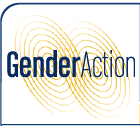|

Commemorating World AIDS Day
On this World AIDS Day, Gender Action calls upon all International Financial Institutions (IFIs) to increase funding to combat HIV, strengthen health systems in developing countries, and improve IFI accountability to ensure that IFI funding truly benefits vulnerable populations. Gender Action research and reports by the World Bank's Independent Evaluation Group (IEG) demonstrate a critical lack of funding for HIV/AIDS and reproductive health initiatives, as well as a disturbing lack of accountability among IFIs to fund projects that benefit the poor. The IEG has also shown that in their support for HIV/AIDS projects, multilateral development banks (MDBs) often ignore the detrimental effect that such targeted funding has on overall health systems.
According to a 2009 IEG report, a significant number of HIV/AIDS-focused World Bank projects in sub-Saharan Africa have failed to benefit the most vulnerable populations. The report, Improving Effectiveness and Outcomes for the Poor in Health, Population and Nutrition (HNP): An Evaluation of World Bank Group Support since 1997, found that about one-third of World Bank HNP lending projects did not perform well, in part "due to the increasing complexity of HNP operations...inadequate risk assessment and mitigation; and weak monitoring and evaluation." The report notes that "current data on risky projects and programs in the HNP portfolio show that problems continue to be most acute in HIV/AIDS projects and in programs in the Africa Region." The report also found that "accountability for results in these projects has been weak." While the HNP portfolio claims to have a "pro-poor focus," few projects actually demonstrate improved outcomes for the poor.
The IEG report also highlights that from 1997 to 2006, "the focus of the Bank's support for reducing fertility and population growth declined." The Bank only approved 14 population projects (defined as "those with population in the title and/or including an objective to reduce fertility, or with a population or family planning component or subcomponent"), as the proportion of funds devoted to population dropped from 11 percent to 2 percent of the HNP lending portfolio. Gender Action's 2007 report, "Mapping Multilateral Development Banks' Reproductive Health and HIV/AIDS Spending," echoed this finding. Gender Action found that "despite firm commitments by all MDBs to achieving MDG reproductive health and HIV/AIDS targets," the World Bank and other MDBs significantly reduced spending for reproductive health and HIV/AIDS. For example, "World Bank funding for HIV/AIDS projects and components dropped from $1.3 billion in 2004 to $790 million in 2006," while overall World Bank spending averaged $21.9 billion per year. The African Development Bank, previously the second largest MDB funder, "provided merely $44 million for HIV/AIDS projects and components from 2003-2006 compared to $108 million for reproductive health over the same period." These sums pale in comparison to the AfDB's overall spending for 2003-2006, which totaled over $27.6 billion.
Although World Bank funding has "shifted in favor of HIV/AIDS" projects, the IEG notes that the Bank has neglected to acknowledge the need to balance funding for communicable disease and support for overall health systems in order for developing countries to provide patients with comprehensive care. According to the IEG report, "there is little evidence in recently approved Bank support for HIV/AIDS or the other high-priority diseases that this issue has been considered in funding decisions or in risk analysis."
To honor the millions of people worldwide who currently live with HIV/AIDS and those who remain at high risk of infection, Gender Action therefore calls upon the World Bank and all MDBs to both increase funding for HIV/AIDS and health system strengthening, and enhance accountability to ensure that funding actually reaches the vulnerable populations that need it the most. Gender Action also advocates that all IFI projects assume a human rights approach, rather than promoting a business case for IFI investments in HIV/AIDS and reproductive health. Gender Action is currently examining active World Bank and African Development Bank HIV/AIDS and reproductive health funding to build upon its 2007 investigation and provide a more in-depth analysis of the quantity and quality of these projects, especially in regard to gender rights and equity.
Read our publication Mapping Multilateral Development Banks' Reproductive Health and
HIV/AIDS Spending for more information on IFI RH/HIV spending.
|
